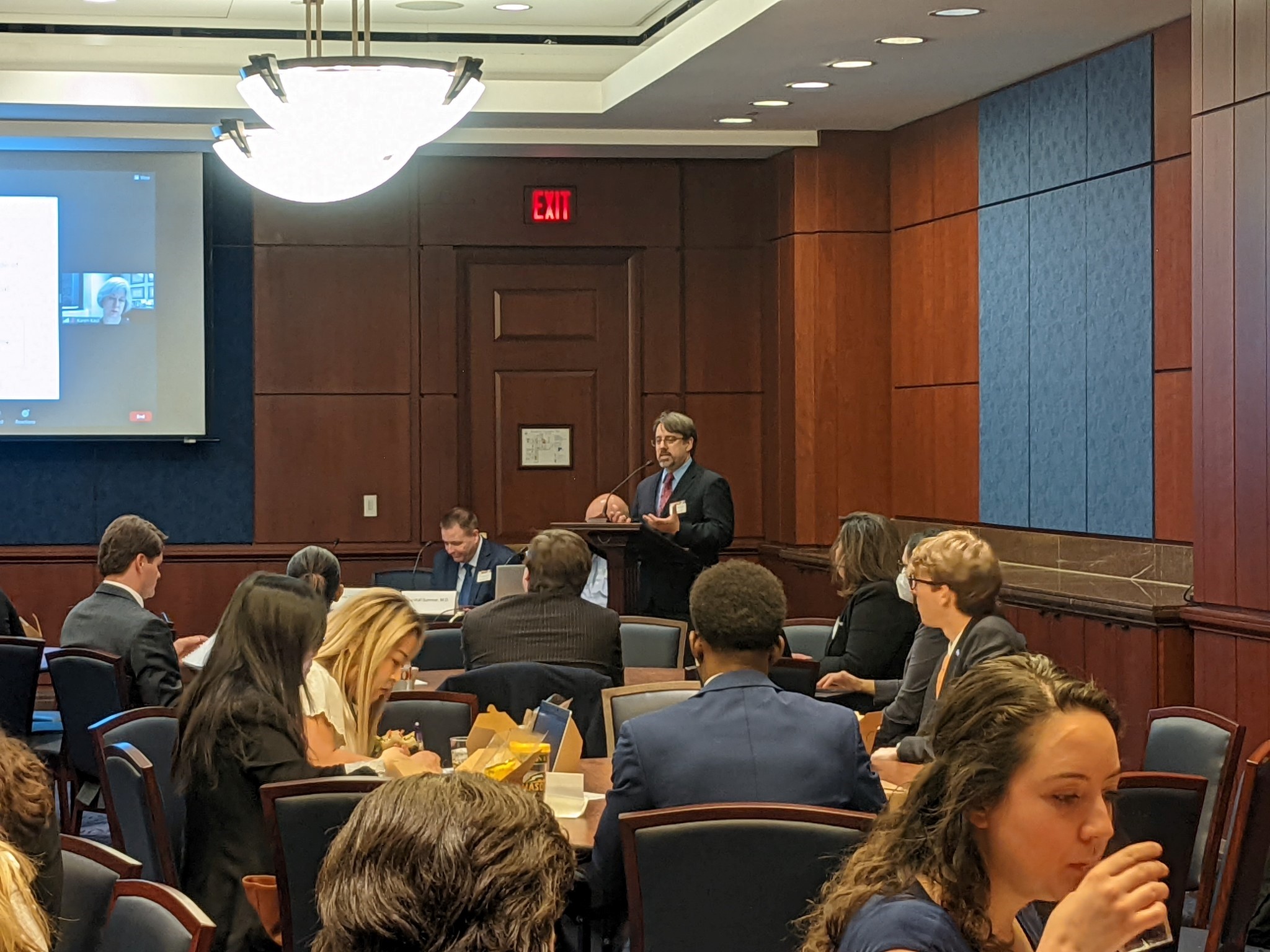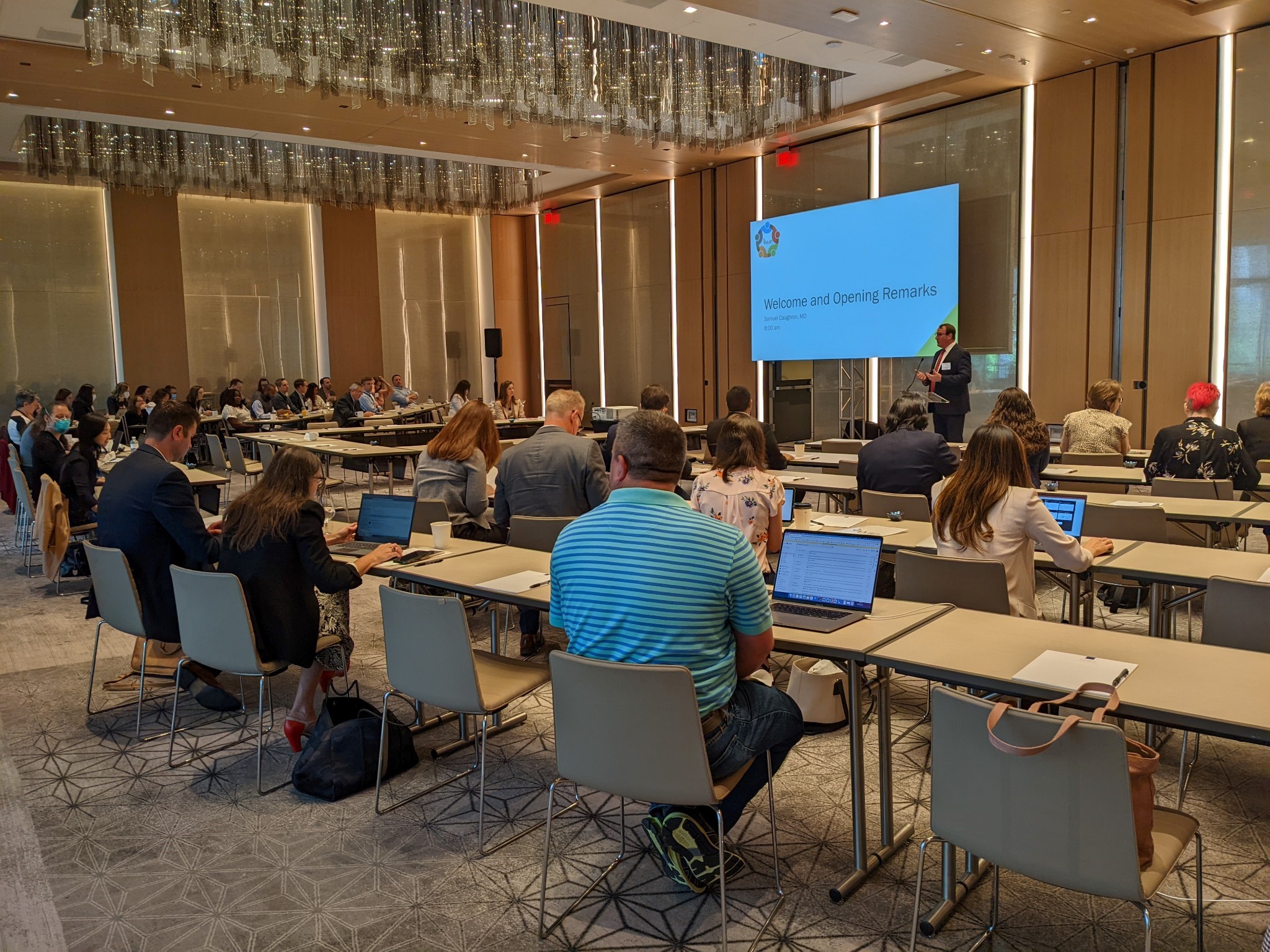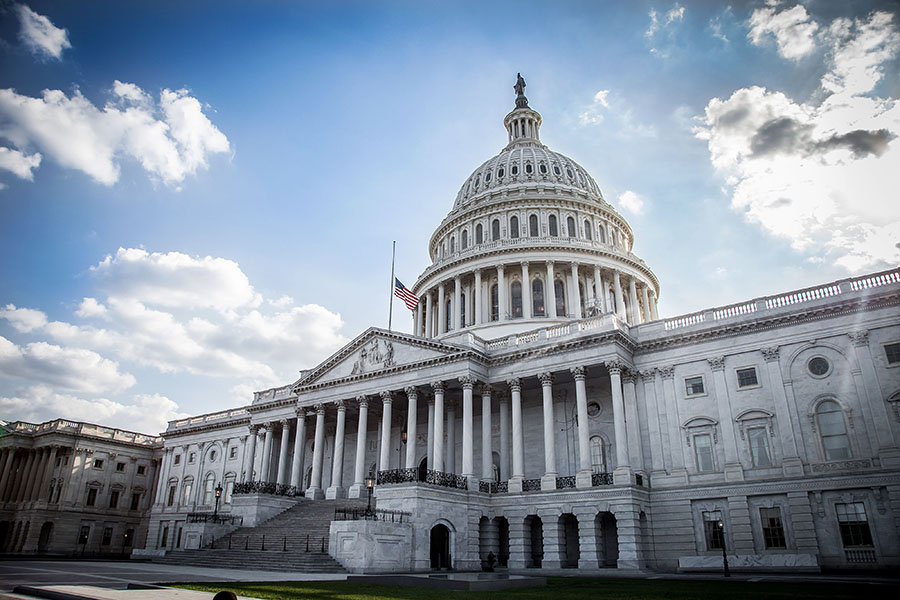
Fall 2022
You’re Invited! Advocacy Events at the Annual Meeting!
As you are aware, our 2022 Annual Meeting will be held in Phoenix, Arizona, from November 1st to the 5th! We are happy to announce that both AMP’s Professional Relations Committee (PRC) and Economic Affairs Committee (EAC) will be hosting events during the 2022 Meeting. The PRC coordinates, strategizes, and implements the Association’s initiatives with government, coalitions, trade associations, and patient and professional organizations to inform and influence policy discussions that have an impact on the practice of molecular pathology. The EAC addresses, advises, and educates payors, legislators, and the public on economic issues of importance to the field of molecular pathology, and develops and advocates for sound economic policies that promote the availability to patients of high quality molecular pathology services. AMP develops its policy positions based on the needs of its membership and in order to ensure they are appropriate and up to date, it is important to connect with the membership and understand their current practice, priorities, and concerns.
- On Thursday, November 3rd we invite you to join us and hear the latest updates on AMP’s advocacy efforts, including protecting the AMP v. Myriad decision, stopping passage of the VALID Act, supporting CLIA Modernization, and enhancing patient advocacy engagement, as well as discover ways members can get involved at the PRC networking luncheon: AMPlify Your Voice: The Future of AMP Advocacy at 12:30pm (Thursday, November 3rd, details found on page 22 of the program book).
- The conversation will then continue during a Meet and Greet with the Policy Team at AMP Central at 3pm (Thursday, November 3rd, details found on page 43 of the program book). Come meet leadership and members from both the PRC and EAC, as well as the AMP Policy and Advocacy Staff! This casual event will be a great opportunity for one-on-one discussions with PRC/EAC members on current advocacy activities as well as guiding the advocacy team’s focus going forward.
- On Friday, November 4th, join AMP’s Infectious Disease and Economic Affairs Experts for an in-depth discussion on the barriers to patient access to molecular infectious disease tests within the existing system of coding, coverage, and reimbursement, as well as to explore potential solutions at the special session titled: Re-Envisioning Reimbursement and Coverage for Today’s Infectious Disease Molecular Diagnostics! (Friday, November 4th, details found on page 51 of the program book).
AMP Advocates for Appropriate Oversight of Laboratory Developed Testing Procedures (LDPs)
Throughout 2022, AMP focused on advocating for appropriate oversight of laboratory developed testing procedures (LDPs), including making sure policymakers are aware of AMP’s concerns and opposition to the VALID Act. For further background on the VALID Act and AMP’s past activities please see our Winter 2022 Champion.
On April 4th, AMP, along with the American Association for Clinical Chemistry (AACC), the American College of Medical Genetics and Genomics (ACMG), and the Association of Pathology Chairs (APC) hosted an in-person congressional briefing on “COVID-19, LDTs, VALID, and MDUFA – What These Acronyms Mean for Patient Care.” Dr. Eric Konnick, Chair of the AMP Professional Relations Committee, shared AMP’s perspective on this policy issue. Following the briefing, AMP policy staff and consultants led joint stakeholder meetings with key congressional leadership offices to continue our efforts expressing our shared concerns regarding the inclusion of VALID in the Medical Device User Fee Agreement (MDUFA) V legislative process. AMP was joined in these meetings by AACC, ACMG, APC, the American Society for Histocompatibility and Immunogenetics (ASHI), the American Society for Microbiology (ASM), and the National Independent Laboratory Association (NILA). The joint meetings were extremely productive and gave our organizations a fantastic platform to express solidarity on this issue.

On May 17th the Senate Committee on Health, Education, Labor and Pensions (HELP) released a discussion draft of the Food and Drug Administration Safety and Landmark Advancements Act (FDASLA Act), which reauthorizes the FDA user fee programs that fund more than half of the FDA’s budget and thus, was considered to be “must pass” legislation. The FDASLA Act included the VALID Act. Following this announcement, AMP quickly took action by sending an action alert to our members urging them to contact their senators to voice their concerns regarding the VALID Act and its inclusion in the FDASLA Act. As a result, approximately 500 letters were sent through AMP’s grassroots system. Then, on May 22nd, AMP sent an extensive response to the Senate HELP Committee outlining the harm the VALID Act would cause the field of molecular diagnostics if it were enacted. AMP also championed a sign-on letter first sent to Congress on July 6th ultimately with over 135 institutions and stakeholders signed on, including many academic medical centers. Finally, on July 27th, AMP organized a virtual day of meetings with Congress during which 45 AMP members met with 90 congressional offices to educate them on our concerns with the VALID Act.
This work has culminated in a successful outcome. On September 30th, Congress passed a continuing resolution (CR) to extend government funding through December 16th. This CR also included a clean reauthorization of the user fee programs for five years and AMP was ecstatic to confirm that the VALID Act was not included! The AMP Policy Team is very grateful and would like to thank all the AMP members who lent their voice, sent letters, joined meetings, and supported our advocacy efforts! After many months and years of hard work, it is important to take a moment to celebrate a win when it happens. However, our work is not yet complete. The bill sponsors are now focused on including the VALID Act as a policy rider in the large omnibus appropriations bill that needs to be passed in mid-December.
AMP is continuously working with other stakeholders and leading efforts to keep up the fight against the VALID Act. We, in partnership with other organizations, are planning to hold another round of meetings with congressional leaders in early December to push back against the inclusion of VALID on the omnibus. AMP will also be coordinating grassroot activities for member involvement, so please keep an eye out for those future updates and opportunities!
AMP Reaffirms Position that Genes Should Not Be Patentable in Response to Newly Introduced Legislation
In 2019, AMP learned about efforts from Senators Tillis (R-NC) and Coons (D-DE) and Representatives Collins (R-GA), Johnson (D-GA), and Stivers (R-OH) to amend Section 101 of the U.S. Patent Act, which defines what is and what is not patent eligible. Since that time, AMP has been heavily engaged with other stakeholders and the sponsors’ offices to express opposition to any legislation that would abrogate the AMP v. Myriad Supreme Court decision. On August 2, Senator Tillis (R-NC) introduced the Patent Eligibility Restoration Act (S.4734) which would allow for the patenting of genetic sequences and other biomarkers and their association with health status. This bill does not reflect the perspectives of groups like AMP despite our extensive and active involvement on this topic. While the legislation will not advance this year, we anticipate that Senator Tillis will reintroduce the legislation early in 2023 and push for its passage. AMP will continue to communicate its strong opposition to this legislation and has already worked with other stakeholders to develop a multi-pronged advocacy strategy.
In September, the United States Patent and Trademark Office (USPTO) requested public feedback on its existing patent subject matter eligibility guidance. AMP took this opportunity to submit comments to the USPTO that highlight how the current state of patent eligibility has had a positive impact on innovation, research, and the U.S. economy. Additionally, we expressed concern that this type of legislation would have a negative impact on patient access and would stifle advances in diagnostic testing if enacted. AMP reiterated our stance that we oppose any type of patenting on naturally occurring genetic sequences and their associations with disease and health status.
On October 17th, AMP in conjunction with the American Civil Liberties Union (ACLU), Invitae Corporation, and FORCE: Facing Our Risk of Cancer Empowered held a virtual congressional briefing to help educate hill staffers on their concerns with S. 4734. More than 80 people registered to attend and over 50 tuned in to the live event. The briefing was directed at congressional staff but was open to other stakeholders who wished to attend, including individuals from patient advocacy and other professional organizations, so the event also served as an opportunity to educate and engage other organizations. The incoming Vice-Chair of the AMP PRC, Karen Weck, discussed the negative impact this legislation would have on the field of molecular pathology. She highlighted that this legislation would bring back an environment similar to pre-AMP vs Myriad where labs were limited in their ability to perform testing due to test monopolies, cost, and more. Karen also discussed how current patent eligibility has allowed labs to flourish and make advancements in whole genome sequencing for undiagnosed diseases, noninvasive screening for cancers, and more. Furthermore, she highlighted that it allowed labs to act quickly in the COVID-19 pandemic, and cope with the supply chain disruption.
Following the briefing, on October 26th, AMP held a patient Advocacy Lunch and Learn to discuss the potential revisions to Section 101 and the impact on patient care, and to renew patient advocacy organization engagement on the issue. Jill Murrell, Chair of the AMP PRC Patient Engagement Subcommittee, and Karen Weck were joined by Lisa Schlager, Vice President of Public Policy at Facing Our Risk of Cancer Empowered (FORCE). Twelve different patient groups were present and discussed the briefing and legislation, in addition to voicing their concerns on how this would impact patient access in a safe environment.
This issue has and will remain a top priority in AMP’s advocacy department for the remainder of this year and in the new Congress. As discussions move forward, we will continue to advocate against this legislation and will keep the membership informed on opportunities to get involved!
AMP Quickly Responds to FDA Issued Emergency Use Authorization (EUAs) for Monkeypox Testing

On September 8th, HHS issued a declaration under section 654 of the Federal, Food, Drug, and Cosmetic Act which allows the FDA to issue emergency use authorizations (EUAs) for in vitro diagnostic tests for monkeypox. AMP staff worked quickly to make sure membership was receiving all incoming information in a timely manner. After the FDA issued their final guidance on September 13th regarding their requirements for monkeypox laboratory developed tests (LDPS), AMP issued an alert with pertinent information. AMP has compiled a Monkeypox Resources Website that has all the information needed for clinical laboratories. This resource continues to be updated as new information becomes available.
AMP Convenes Diverse Group of Stakeholders to Discuss the Economics of Molecular Diagnostic Testing

On July 15, after two COVID-19 related delays, AMP held its second annual Molecular Pathology Economics Summit. As the molecular diagnostics field is rapidly and continuously evolving, it is important that the systems change and evolve with it. Therefore, AMP created a space where diverse stakeholders could discuss current challenges in the field that hinder patient access to molecular diagnostics. This day-long Economic Summit hosted 67 attendees from organizations such as diagnostic and pharmaceutical trade and professional organizations, laboratories, and patient advocacy groups. Attendees participated in discussions on the impact COVID-19 had on laboratories, as well as the effects that coding, pricing, and coverage of molecular tests have on patient access. This event also hosted AMP’s first Innovation Lab, where stakeholders were invited to present their work to improve patient access and build synergy around potential action items that stakeholders could collaborate on. These action items were voted on by attendees and a final action item was determined for AMP to follow up in the next year. More information regarding the summit can be found on AMP’s 2022 Economic Summit Webpage. With the success of our 2019 Summit and the enthusiastic reception of the 2022 Summit, AMP plans to make this an annual event moving forward.
AMP Works with Stakeholders to Identify Reimbursement and Coverage Barriers to Infectious Disease Testing

On May 26, AMP held a Corporate Advisory Council (CAC) Infectious Disease (ID) Roundtable that brought together infectious disease experts to discuss the current problems and future direction of the ID field. The participants consisted of representatives from AMP’s Infectious Disease and COVID task force and representatives from the CAC. This discussion highlighted a myriad of issues in the ID field, particularly those related to coverage and reimbursement.
A recent example of this is the MolDX Local Coverage Determination (LCD) L38988. On July 2, 2021 AMP submitted a joint response on this policy with the College of American Pathologists (CAP) and the American Gastroenterological Association (AGA). The response highlighted our areas of concerns regarding the proposed limitation on who could order specific panels to specialists and putting specific restrictions on respiratory (RP), pneumonia panels (PNP) and gastrointestinal (GI) panels.
In March of 2022, MolDX released the finalized LCD under a new name – MolDX: Molecular Syndromic Panels for Infectious Disease Pathogen Identification Testing (L38988). AMP and other laboratory stakeholders are analyzing the policy to determine the effect it will have on our members. AMP members have already raised concerns regarding the definition of a panel test and specific ordering requirements. AMP will continue to engage with diverse stakeholders on this issue and will be engaging in joint advocacy as necessary.
Furthermore, to continue the discussions on the future of infectious disease molecular diagnostics and determine our next steps for advocacy, AMP will be hosting another ID roundtable, Re-Envisioning Reimbursement and Coverage for Today’s Infectious Disease Molecular Diagnostics, at our 2022 Annual Meeting & Expo. The event will be held Friday, November 4th at 1:30 PM - 2:45 PM. Please join AMP’s Infectious Disease and Economic Affairs Experts for an in-depth discussion to (1) identify pain-points within the existing system of coding, coverage, and reimbursement and (2) explore ideas to address these issues in order to facilitate patient access to high quality diagnostic tests for infectious diseases. We hope to see you there!
Recent Comment Letters:
AMP Comments on Clinical Laboratory Fee Schedule (CLFS) CY2023 Preliminary Determinations - October 24, 2022
AMP Comments on MolDX Prognostic and Predicative Molecular Classifiers for Bladder Cancer (DL38684) - October 11, 2022
AMP-CAP Comments on Molecular Testing for Cutaneous Melanoma (DL39479) - October 5, 2022
AMP Comments on CMS Notice of Proposed Rulemaking 3326 - Septermber 14, 2022
Sign-on Letter to Senate in Support of Telehealth Extension - Septermber 13, 2022
AMP Response to “Providing Clear Guidance on Patent Subject Matter Eligibility” - September 12, 2022
Sign-on Letter Supporting the Saving Access to Laboratory Services Act(SALSA) - September 9, 2022
AMP comments on CMS Physician Fee Schedule - September 6, 2022
AMP Response to NASEM Workshop “Lessons from COVID-19 for the Public Health Emergency Enterprise: What Happened to the Plans” - August 15, 2022
AMP Response to GAO report on “COVID-19: FDA Took Steps to Help Make Tests Available; Policy for Future Public Health Emergencies Needed” - August 15, 2022
AMP Statement on Dobbs v. Jackson Women's Health Organization - August 12, 2022
AMP and CAP Joint Response to MolDX: Molecular Assays for the Diagnosis of Cutaneous Melanoma (DL39345) - August 5, 2022
AMP Response to Genetic Testing for Oncology - DL39367 (First Coast Service Options, Inc), DL39365 (Novitas Solutions, Inc) - July 22, 2022
UPDATED: Sign-on Letter Expressing Concern About Advancing the VALID Act of 2022 as Part of the FDASLA Act - July 6, 2022
AMP Comments on the Discussion Draft of the FDASLA Act and in Particular, Subtitle C of Title VIII Which Includes VALID Act of 2022 - May 22, 2022
The AMP EAC and PRC work diligently to provide input to Congress and relevant agencies on all issues affecting regulation and reimbursement of molecular procedures. You can peruse all recent comment letters here.



















